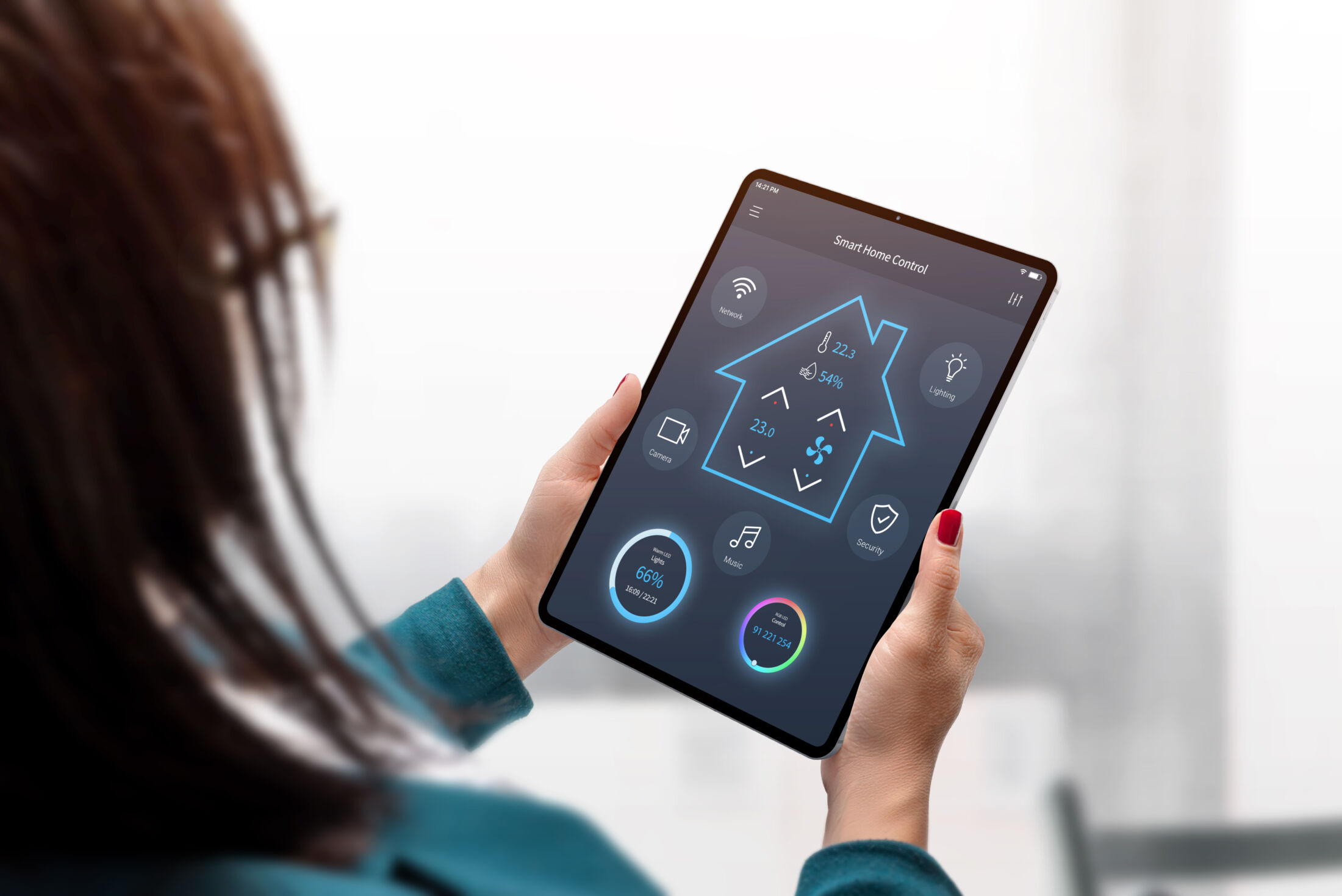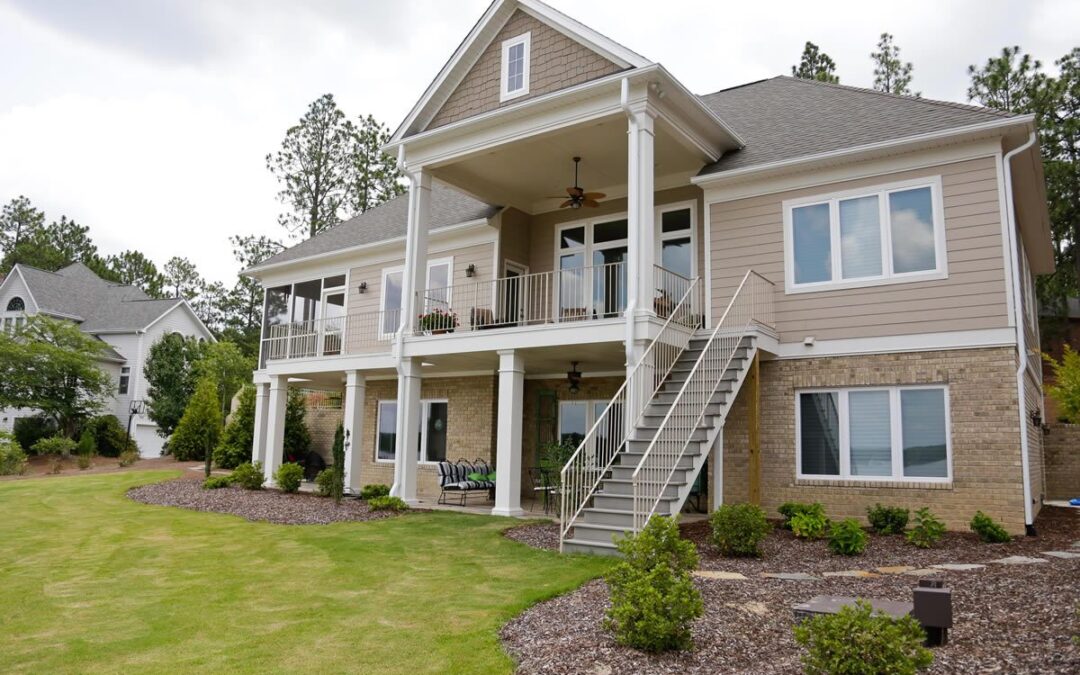As we move into an era of advanced home automation
..Smart home technology integration is becoming a must-have feature in new builds. Offering homeowners enhanced convenience, improved efficiency, and top-tier security. This cutting-edge technology is revolutionizing the way we live. In this comprehensive guide, we will delve into the details of incorporating smart home technology into next-generation home builds. From planning and installation to the key advantages and considerations. Whether you’re building a new home or looking to upgrade, this guide will provide valuable insights into embracing the future of home construction.
1. What Is Smart Home Technology Integration in New Builds?
Smart home technology integration in new builds involves the seamless incorporation of interconnected devices and systems during the construction process. This goes beyond adding a few gadgets post-construction. By integrating smart technology from the ground up, builders can create a fully automated and responsive living environment. These systems include everything from climate control, lighting, and entertainment, to more advanced features like voice-activated assistants, automated security systems, and energy management solutions.
By embedding smart infrastructure into the home’s design, homeowners can enjoy a truly customized experience that enhances daily living.

ANY QUESTIONS? Contact Us Here →
2. How Can Smart Home Technology Be Integrated into New Builds?
Smart home technology integration begins in the planning phase of construction. Collaborating with builders, architects, and smart technology experts is essential to ensure that all components are properly aligned with the home’s design. Here are some steps to consider:
•Structured Wiring: Ensure the home is equipped with a robust wiring system that supports high-speed internet and the connectivity required for smart devices.
•Device Placement: Strategically plan the installation of devices such as smart thermostats, lighting systems, and security cameras in key locations.
•Smart Hubs & Control Centers: Installing central control hubs or integrating mobile apps allows homeowners to manage all their smart devices from one place.
•Professional Installation & Setup: It’s crucial to work with professionals who understand both construction and smart technology, ensuring the devices are installed correctly and operate seamlessly.
3. What Are the Advantages of Incorporating Smart Home Technology into New Builds?
The integration of smart home technology into new builds offers a multitude of advantages for homeowners, including:
•Increased Energy Efficiency: Smart thermostats, lighting systems, and appliances can be programmed to reduce energy consumption. Leading to lower utility bills and a reduced environmental footprint.
•Enhanced Security: From smart doorbells and cameras to automated locks and motion sensors. Smart security systems provide peace of mind by allowing homeowners to monitor and control their home’s safety remotely.
•Convenience & Automation: Whether it’s setting the perfect mood with automated lighting or adjusting the temperature while you’re away. Smart technology simplifies daily tasks and personalizes your living experience.
•Remote Monitoring & Control: The ability to control systems from your smartphone or voice-activated assistant allows for real-time management, no matter where you are.
•Future-Proofing: Homes with integrated smart technology are not only more attractive to modern buyers, but they’re also positioned to easily adapt to future technological advancements.
4. Key Considerations for Smart Home Construction in New Builds
While the benefits are substantial, it’s important to carefully consider a few factors when integrating smart technology into new builds:
•Device Compatibility: Ensure the chosen devices and systems are compatible with each other to create a seamless smart ecosystem.
•Reliable Connectivity: A strong Wi-Fi network or wired connections are essential to avoid lags or interruptions in the smart devices’ functionality.
•Scalability & Future Upgrades: Design the system with future expansions in mind. As smart technology continues to evolve, having a scalable infrastructure allows for easy upgrades without major disruptions.
•Cybersecurity: With the rise of connected devices comes the need for enhanced cybersecurity measures to protect personal data and prevent unauthorized access.

5. How Homeowners Benefit from Next-Generation Home Builds with Smart Technology
Homeowners who embrace smart technology integration in their new builds can enjoy a wide range of benefits, including:
•Comfort & Customization: Smart homes create a personalized environment, adjusting temperature, lighting, and entertainment based on your preferences.
•Cost Savings: Through energy-efficient appliances, automated climate control, and monitoring systems, homeowners can reduce energy consumption and lower utility bills.
•Increased Property Value: Homes equipped with smart technology are highly desirable in today’s market, often resulting in higher resale values.
•Safety & Security: Remote access to security systems, including cameras and alarms, provides peace of mind, whether you’re at home or on vacation.
•Streamlined Living Experience: Managing multiple aspects of your home with just a smartphone or voice command creates a lifestyle of convenience and control.
Smart home technology allows for seamless control of lighting, temperature, and security. All at the touch of a button or through voice commands. As you sip your morning coffee, your smart thermostat adjusts to your preferred temperature while your security system provides peace of mind. Moreover, these next-generation home builds are designed with energy efficiency in mind, significantly reducing utility costs over time. Embracing this innovative approach not only enhances daily living. Furthermore; it adds lasting value to your property—making it a wise investment for the future.
Conclusion
In conclusion, smart home technology integration in new builds is no longer a luxury—it’s becoming the standard for modern living. As technology continues to evolve, next-generation home builds are offering more than just a roof over your head. They are providing a fully integrated, intelligent living experience. By planning ahead and considering the benefits and challenges of smart technology. Homeowners can create a future-proof, energy-efficient, and secure home that fits their lifestyle. Whether you’re a prospective homeowner or a builder looking to stay ahead of the curve, embracing smart home integration is key to the future of home construction.

